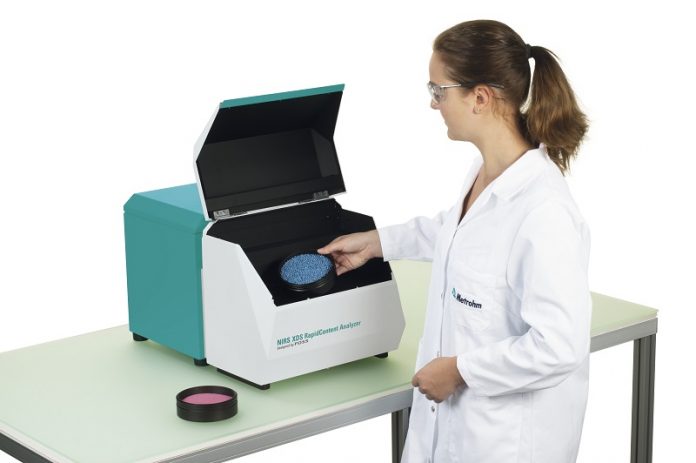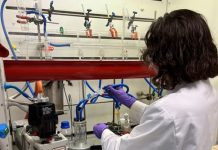Polyols are a broad class of organic compounds characterised by the presence of two or more hydroxyl groups. Synthetic polyols are frequently used as raw materials in the production of polyurethanes. In a condensation reaction polyols form bridges between isocyanate molecules, leading to polyurethane with a polymeric structure.
The properties of the final product can be influenced through a selection of appropriate raw materials with defined chemical and physical properties. Therefore, it is indispensable to perform a quality control of raw materials prior to the polymerisation in order to minimise the risk of out-of-spec products. In this step, it is important to determine multiple quality parameters such as hydroxyl value, acid value, moisture content and others.
The classical way for the analysis is the use of titration. This method requires reproducible sample preparation, additional chemicals, and waste disposal, which result in increase of the running costs. The duration of analysis depends on the sample type and is usually at least 30 minutes per parameter.
Alternatively, the manufacturer can utilise near-infrared spectroscopy (NIR) to analyse the sample without any sample preparation. Due to its multi-component capability, NIR enables simultaneous determination of multiple quality parameters within a minute. This leads to significant time savings compared to the classical analysis methods. Additionally, this technique enables a possibility to significantly reduce running costs since the analysis is performed without the use of chemicals such as solvents or reagents.
NIR was recognised by regulatory bodies as a tool for quality control and can be used for the determination of hydroxyl values according to ASTM D6342 or ISO 15063 norms. An Application Note from Metrohm demonstrates the application possibility of NIR for the quality control of polyols.
Download the application note: HERE









